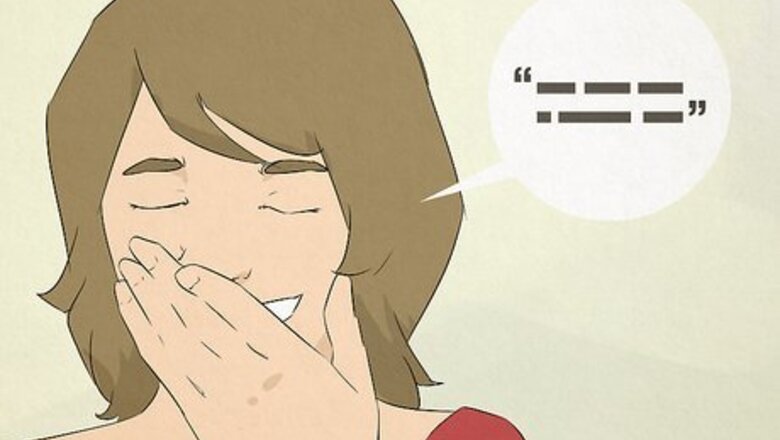
views
Telling a Basic One-Liner
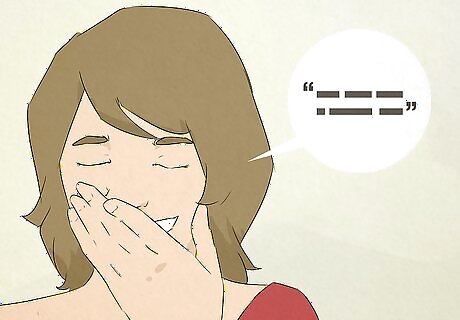
Make your joke super short. The main rule of one-liners is in the name: it needs to be about one line. Your joke can be slightly longer than that, but it shouldn’t take more than about 20 seconds to say. Keep it short and sweet so the audience stays on their toes. If you find this a little challenging, you may want to take your comedy in more of a story-telling direction rather than one-liners.
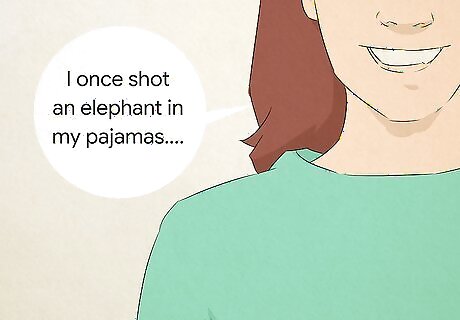
Start with a set up that sounds like it’s going in one direction. To start off a one-liner, say something to make the audience think they know where it’s going. It can be the start of a cliché joke, a common situation, or an opinion about a current event. For example, you could say, “I once shot an elephant in my pajamas.” The audience thinks that you’re saying that you wore the pajamas, not the elephant.
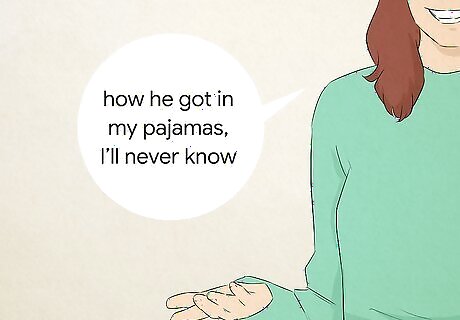
End with a punchline that isn’t what the audience expected. The beauty of one-liners is that the punchline is almost always unexpected. No matter what your joke started with, end it with something that the audience wouldn’t have necessarily thought of. For example, if you said, “I once shot an elephant in my pajamas,” follow it up with, “how he got in my pajamas, I’ll never know.” The audience thought you were talking about you wearing the pajamas, but actually, you were describing an elephant wearing your pajamas. Or, “Don't you hate it when someone answers their own questions? I do.” You could also try, “I own the world's worst thesaurus. Not only is it awful, it's awful.” One-liners don’t necessarily have to be “smart;” what makes them funny is that they’re the opposite of what the audience expects.
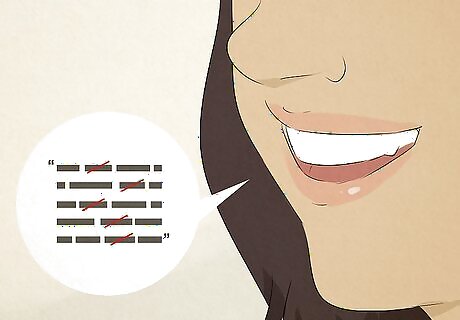
Eliminate any unnecessary words. Remember, one-liners are supposed to be short. If you’re rambling on about something, your audience will probably not be as engaged. Try to take out adjectives and descriptive words until your joke is just bare bones. Take the joke, “I've been putting in so much overtime, that I came home to an empty house last night. I found a note. It said, 'I can't take it anymore. I've gone for a long walk in the park to think over our relationship.' It was from my dog." The joke is good, but it’s pretty wordy. Try taking out some words until it sounds like this: “I came home to any empty house last night with a note on the table. It said, ‘I’ve gone for a long walk in the park to think over our relationship. Signed, your dog.’” Or the joke, “Never criticize someone until you've walked a mile in their shoes. That way, when you criticize them, they won't be able to hear you from that far away. Plus, you'll have their shoes.” Again, it’s funny, but a little long and choppy. Try taking out some words to make: “Never criticize someone until you've walked a mile in their shoes. That way, when you criticize them, they won’t be able to hear you, and you’ll get a new pair of shoes.”
Trying Different Styles
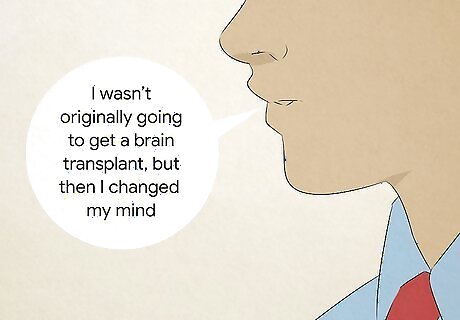
Go with a pun if you like playing with words. If you’re familiar enough with your language, try using some word play. You can set up your joke with something that sounds totally normal, then end it with a pun. For example, “I wasn't originally going to get a brain transplant, but then I changed my mind.” Or, “I can't believe I got fired from the calendar factory. All I did was take a day off.”
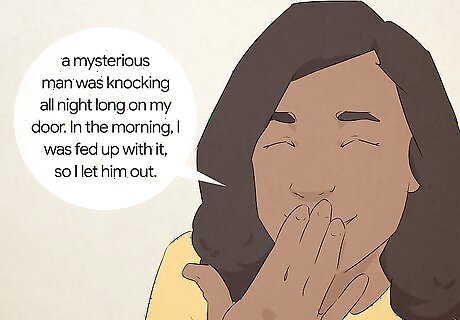
Make a punchline the exact opposite for some reversal humor. This is the classic form of a one-liner, but you can take it one step further. When you do your set up, make a situation in which the audience thinks they have all the facts. When you say your punchline, make it the exact opposite of what the audience thought. For example, “A mysterious man was knocking all night long on my door. In the morning, I was fed up with it, so I let him out.” Or, “I want to die peacefully in my sleep like my grandfather. Not screaming and yelling like the passengers in his car.”

Describe a specific situation to make a joke about it. Situational humor is great for putting the audience in your shoes. Make sure you describe a situation very clearly and precisely so the audience can picture it in their heads. For example, “The first ever spices festival opened this week. The festival ended earlier than expected when someone switched on the ceiling fan.” Or, “I wanna hang a map of the world in my house. Then I’m gonna put pins into all the locations that I’ve traveled to. But first, I’m gonna have to travel to the top two corners of the map so it won’t fall down.”
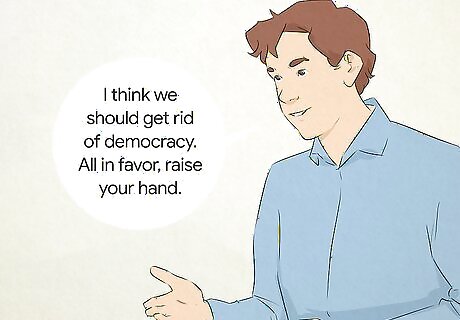
Try political humor to talk about current events. No matter what’s going on in the political world, it’s always fun to talk about politicians. Think of a current event that’s happened recently and make a joke out of it. Make sure you only tell this joke around the time of the event, though, or you could seem out of touch. For example, “I think we should get rid of democracy. All in favor, raise your hand.” Or, “What's the difference between baseball and politics? In baseball you're out if you're caught stealing.”
Using One-Liners
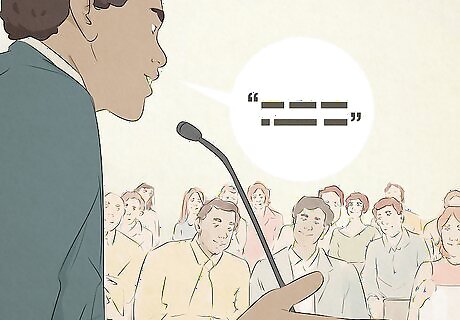
Sprinkle in a few one-liners to spice up your comedy set. You probably won’t be able to make an entire stand-up set out of one-liners, but they’re great for breaking up the monotony of long jokes. Add in 2 to 3 one-liners throughout your routine to change the pacing of your comedy. If you really like one-liners, consider telling a comical story where all of the characters only speak in one-liners.
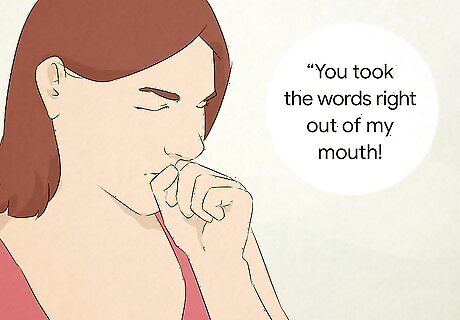
Keep a few one-liners in your mind for some situational humor. One-liners can be reactionary as well, especially when you’re in a funny situation. Keep a few in your back pocket in case a situation arises where you can use one. You can make fun of your friends or the situation you’re in to add some humor to your daily life. For example, if you drop something, you could say, “I’ll just put that down right there.” Or, if one of your friends burps, you could say, “You took the words right out of my mouth!”
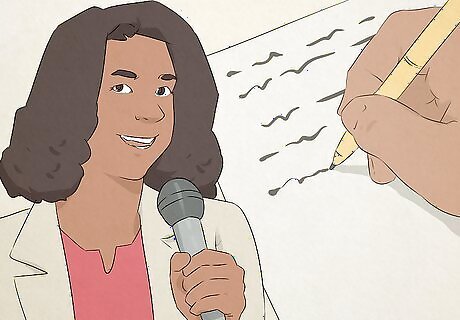
Make one-liners your default joke. One-liners are easy to come up with since they’re so short. Many comedians are known for their one-liners alone, and you can be too! Try thinking of one-liners anytime you’re out and about, and write them down in a notebook so you don’t forget. You’ll probably want to memorize your one-liners before you perform them onstage.












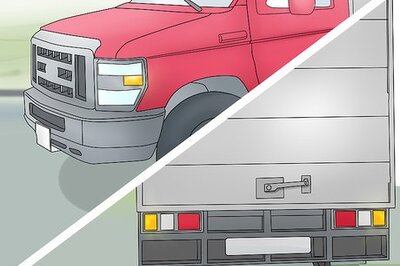




Comments
0 comment